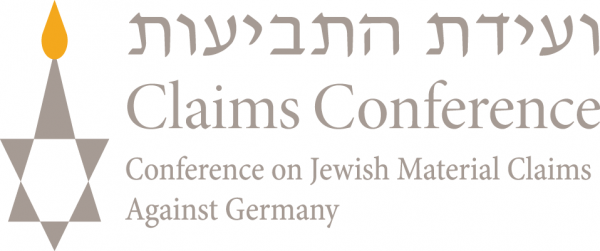Czech Looted Artwork: Deadline Abolished; Claims Can be Filed Indefinitely
Claims Conference in the Media | Press Inquiries | Publications | Videos | Updates
This post is for historical informational purposes only. Please do not refer to this post for information pertaining to current Claims Conference programs. Visit What We Do for current program guidelines and information. Thank you.
November 10, 2006
Following efforts by the Claims Conference and World Jewish Restitution Organization, the Czech lower house of Parliament has passed a bill that abolishes the December 31, 2006 deadline for filing claims for artworks and cultural objects looted during the Shoah. Under this bill, claims may be filed indefinitely. Taking a prominent role in this effort was the Federation of Jewish Communities in the Czech Republic, led by Tomas Kraus.
The claims process in the Czech Republic was established by a 2000 law permitting applicants of any nationality to claim art that was stolen from Jews between September 29, 1938 and May 8, 1945 and that is currently in Czech state collections. Since the law was passed, approximately 20,000 objects in Czech collections have been identified as having been obtained by the Nazis, but only about 500 have been returned.
The bill extending the deadline must still be approved by the Senate and signed into law by President Vaclav Klaus to take effect, which is anticipated to occur soon. The Claims Conference and World Jewish Restitution Organization have been pressing the Czech government for some time to extend the claims deadline.
The Czech government recently agreed to extend funding for the Documentation Centre of Property Transfers of Cultural Assets of WWII Victims, which researches the provenance of artworks and identifies Nazi-stolen art.
For further information, contact the Czech Ministry of Culture. A list of artworks identified as confiscated by the Nazis is located on its website at www.restitution-art.cz.
The information presented herein is intended for information purposes only and solely as a general guide. The information is not intended as legal advice. It is a summary of specific issues and does not represent a definitive or complete statement of the programs and policies of the agencies or governments mentioned. The information may not address the special needs, interests and circumstances of individual recipients. Individual situations differ and recipients are urged to seek individual advice. Individuals seeking specific information on a program are urged to contact the relevant program or to consult their social service agency or help center representative. To the best of our knowledge the information is correct as of the date of this document and this information may change subsequent to the said date. Updated November 2006.

